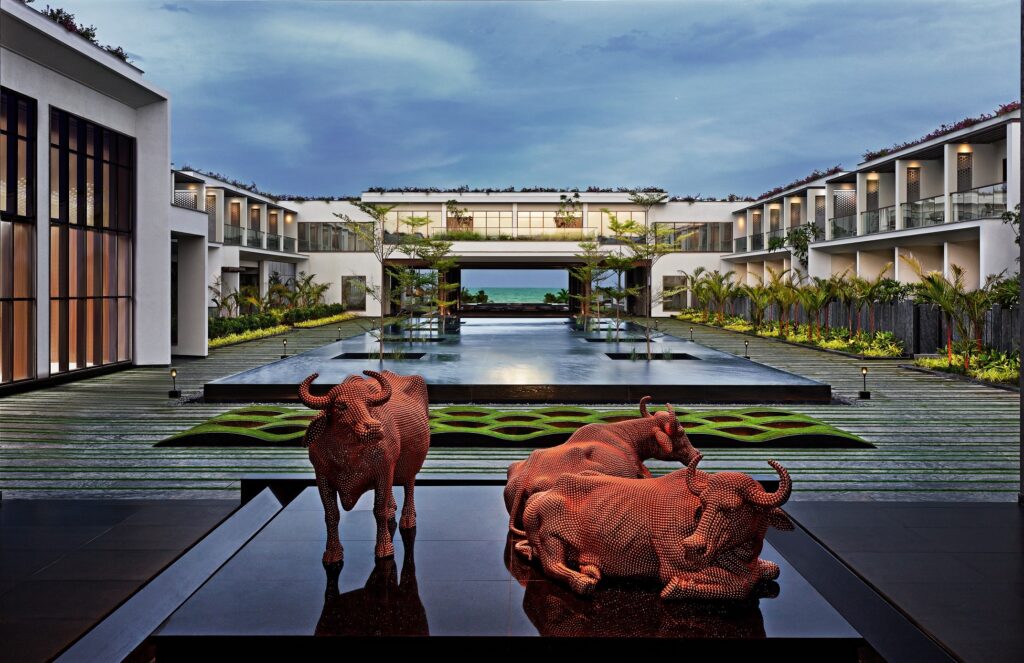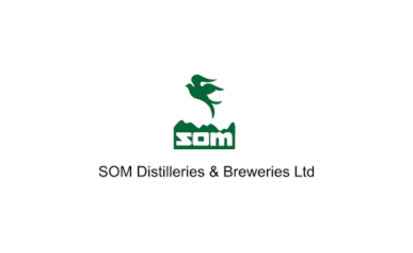Wine is Not Just a Beverage; It’s an Integral Part of the Culinary and Hospitality Experience
Arokyadas Maimarulla, Director of Food & Beverage, Sheraton Grand Chennai Resort & Spa, Mahabalipuram. Major factors behind the growth of Wine tourism in India The wine industry in India is currently experiencing substantial growth, making it an exciting time

Arokyadas Maimarulla, Director of Food & Beverage, Sheraton Grand Chennai Resort & Spa, Mahabalipuram.
Major factors behind the growth of Wine tourism in India
The wine industry in India is currently experiencing substantial growth, making it an exciting time for both enthusiasts and investors. Some key insights into the major factors behind the expansion of wine tourism in India are:
- Increasing Wine Production: India has seen a significant increase in wine production in recent years. This growth is fueled by the emergence of several high-quality domestic wineries, producing a wide variety of wines that cater to different preferences. This increased production has led to more wine destinations and tasting opportunities, attracting tourists.
- Changing Consumer Preferences: Indian consumers are gradually shifting their preferences from traditional alcoholic beverages to wine. Wine is often perceived as a healthier and more sophisticated choice, appealing to a growing middle class with a taste for luxury experiences.
- Tourism Promotion: Indian states with prominent wine regions, such as Maharashtra (Nashik and Pune) and Karnataka (Nandi Hills and Hampi), have been actively promoting wine tourism. These efforts include wine festivals, guided vineyard tours, and wine-related events to attract tourists.
- Culinary Tourism: Wine complements food exceptionally well, and Indian cuisine is renowned for its diverse flavors. The rise of food and wine pairings and culinary tourism has contributed to the growth of wine tourism. Wineries often offer wine and food pairing experiences, enticing gastronomy enthusiasts.
- Improved Infrastructure: Investments in infrastructure, including modern wineries and visitor facilities, have enhanced the overall wine tourism experience. Tourists can now enjoy well-designed tasting rooms, restaurants, and comfortable accommodations amidst vineyards.
- Wine Education: There is a growing interest in wine education among Indians. Wineries often conduct workshops, tastings, and certification courses, attracting wine enthusiasts and aspiring sommeliers.
- Global Recognition: Indian wines have begun to gain recognition on the international stage, winning awards and accolades. This has boosted the confidence of domestic wine producers and attracted international wine tourists looking to explore new wine regions.
- Rising Disposable Income: As disposable income levels rise in India, more people can afford to indulge in wine tourism. This growing affluence allows for more wine-related travel and purchases.
- Social Media and Digital Marketing: The use of social media and digital marketing has significantly contributed to the visibility of Indian wineries and wine-related events. Online platforms allow wineries to reach a broader audience, including tourists planning their visits.
How has the placement/ demand of wine in Hotels changed over time?
The placement and demand for wine in hotels have evolved significantly over time due to changing consumer preferences, globalization, and a greater emphasis on culinary experiences. Here’s an overview of how these dynamics have transformed the wine industry within the context of hotels:
- Diverse Wine Lists: Over the years, hotels have diversified their wine lists to cater to a broader range of tastes and budgets. In the past, many hotels offered a limited selection of well-known wines. Today, you’ll find a more extensive and diverse wine list that includes options from various regions, including local and international wines, catering to both connoisseurs and casual drinkers.
- Wine Pairing Menus: Hotels have recognized the importance of wine as a complement to their culinary offerings. Wine-pairing menus have become more common, allowing guests to enhance their dining experiences. This trend has led to increased collaboration between sommeliers and chefs to create harmonious wine and food pairings.
- Focus on Local Wines: Many hotels now place a stronger emphasis on promoting and serving local wines. This not only supports regional wineries but also provides guests with a unique opportunity to taste wines specific to the area they are visiting.
- Wine Education: Hotels often offer wine education programs, tastings, and events to enhance guest knowledge and appreciation of wine. This educational approach has led to a more informed and discerning clientele.
- Wine by the Glass: The availability of wine by the glass has increased, allowing guests to sample a variety of wines without committing to a full bottle. This approach caters to a broader range of preferences and encourages experimentation.
- Wine Storage and Presentation: Hotels have improved wine storage conditions and presentation. Many upscale hotels have invested in well-designed wine cellars and display areas, creating a visually appealing ambiance for wine enthusiasts.
- Digital Wine Lists: Some hotels have adopted digital wine lists on tablets or mobile devices, offering interactive features such as wine descriptions, food pairings, and customer reviews. This enhances the guest’s experience and provides more information for making wine selections.
- Wine Events: Hotels host wine-related events, such as wine tastings, wine and cheese evenings, and wine-themed weekends, to attract wine enthusiasts and create memorable experiences for guests.
- Sustainable and Organic Wines: With a growing awareness of sustainability and organic practices, hotels now often include environmentally conscious wine options on their lists, appealing to guests who prioritize sustainability.
- Room Service and Mini Bars: Some hotels have expanded their wine offerings for in-room dining and mini-bars, providing guests with convenient access to wine without having to visit the hotel’s restaurant or bar.

Wine has become an essential part of the menu in today’s dining experience. What are the key factors in managing and serving the diners’ wine options?
Wine has become a crucial element of the dining experience in today’s culinary landscape. Managing and serving diners’ wine options effectively involves several key factors to ensure a seamless and enjoyable experience:
Wine List Curation:
- Variety: Create a diverse wine list that includes options from various regions and grape varieties, catering to different tastes and preferences.
- Pricing: Offer a range of price points to accommodate different budgets, including affordable options as well as premium selections.
- Seasonal Changes: Update the wine list seasonally to reflect changes in availability and to keep the offerings fresh and interesting.
Wine Knowledge:
- Staff Training: Ensure that the staff, particularly servers and sommeliers, are well-trained and knowledgeable about the wines on the list. They should be able to provide recommendations, describe flavors, and offer food pairing suggestions.
- Regular Tastings: Conduct regular wine tastings and staff training sessions to keep the team informed about new additions to the wine list and to maintain their expertise.
Wine Storage and Presentation:
- Proper Storage: Maintain proper wine storage conditions, including temperature and humidity control, to preserve the quality of the wines.
- Attractive Presentation: Present the wine bottles and labels in an aesthetically pleasing manner. A well-designed wine display can enhance the overall dining experience.
Food and Wine Pairing:
- Menu Integration: Collaborate with the kitchen to ensure that the wine list complements the restaurant’s menu. Highlight recommended wine and food pairings on the menu.
- Sommelier Guidance: Offer the expertise of a sommelier or wine steward who can guide diners in selecting wines that harmonize with their chosen dishes.
Wine Service:
- Proper Glassware: Serve wine in appropriate glassware that enhances the wine’s aroma and flavor. Different types of wine glasses are designed for specific varietals.
- Correct Temperature: Serve wines at the correct temperature. Red, white, and sparkling wines each have their ideal serving temperatures.
- Decanting: Be prepared to decant wines that benefit from aeration, such as young red wines or older bottles with sediment.
Wine Pairing Events:
- Wine Dinners: Host wine-pairing dinners or events where diners can explore different wines alongside a specially crafted menu.
- Tasting Flights: Offer wine-tasting flights that allow diners to sample multiple wines and discover their preferences.
Wine Education:
- Educational Materials: Provide educational materials on the wine list, including descriptions of wine regions, grape varieties, and tasting notes.
- Wine Classes: Organize wine education classes or tastings for interested diners to enhance their wine knowledge.
Guest Preferences:
- Ask for Preferences: When diners order wine, inquire about their preferences in terms of flavor profile, style, and price range to offer personalized recommendations.
- Flexibility: Be flexible in accommodating special requests, such as half-bottle options, wine flights, or corkage fees for diners bringing their own bottles.
Sustainability and Responsible Service:
- · Sustainable Choices: Consider offering sustainable and organic wine options to cater to environmentally conscious diners.
- · Responsible Service: Train staff to promote responsible alcohol consumption and know when to refuse service to individuals who may have had too much to drink.
Feedback and Adaptation:
- Gather Feedback: Encourage diners to provide feedback on the wine list and service. Use this feedback to continuously improve the wine program.
- Adapt to Trends: Stay attuned to evolving wine trends and adjust the wine list accordingly to meet changing diner preferences.
According to you, how has the wine industry evolved over time in terms of supply as well as customer demand? How has it been impactful for your brand?
Evolution of the Wine Industry:
1) Supply Side:
- Increased Domestic Production: India has witnessed significant growth in its domestic wine production. This includes the emergence of new wineries in regions like Nashik, Pune, and Karnataka. This increase in production has led to a wider selection of high-quality Indian wines available in the market.
- Diverse Wine Styles: Winemakers in India have experimented with various grape varieties and styles, leading to a more diverse range of wines. This diversity has attracted both local and international consumers.
- Export Opportunities: Indian wines have started gaining recognition in the international market, particularly in countries like the United States, the United Kingdom, and Canada. This presents export opportunities for Indian wine producers.
2) Customer Demand:
- Culinary Tourism: The growth of the wine industry has fueled culinary tourism in India. Travelers increasingly seek wine and food experiences, making wine an essential component of their dining and vacation choices.
- Wine Education: Consumers are becoming more knowledgeable about wine, attending wine tastings, and seeking educational experiences. They are interested in understanding wine varietals, food pairings, and tasting techniques.
- Health Consciousness: Wine is perceived as a healthier alcoholic beverage option, particularly red wine due to its potential health benefits. Health-conscious consumers are gravitating towards wine.
- Diverse Palates: Consumers are open to exploring different wine styles and origins. There’s a growing demand for both Indian and international wines, which is reflected in their willingness to experiment with new labels.
3) Impact on Brand (Resort):
- Enhanced Wine Offerings: With the growth of the wine industry, we can diversify wine offerings to include a broader range of Indian and international wines. This can elevate the dining experience and cater to the evolving preferences of wine enthusiasts.
- Culinary Tourism Attraction: Positioning a hotel as a destination for wine and culinary experiences can attract a niche market of travelers interested in exploring the local wine culture. Offering wine tastings, pairings, and wine-themed events can enhance the brand’s appeal.
- Wine Education Programs: Consider introducing wine education programs or workshops at the hotel. This can cater to the demand for wine knowledge and provide unique experiences for your guests.
- Health-Conscious Options: Emphasizing the health benefits of wine (in moderation) and offering a selection of wines known for their antioxidants and potential health advantages can align with the wellness trends in the market.
- Collaboration with Local Wineries: Building partnerships with nearby wineries can enable the hotel to showcase local wines and promote the burgeoning Indian wine industry. This collaboration can be mutually beneficial.
- Marketing Opportunities: Leveraging the growth of the wine industry in India in the marketing efforts can help attract wine enthusiasts and position the resort as a wine-friendly destination.
It’s important to continually assess the evolving dynamics of the wine industry and adapt the resort’s food and beverage offerings accordingly to meet the changing demands and preferences of the guests.
How is wine at your brand (Hotel, restaurant or airline) playing an essential role in customer experience?
Wine plays a significant and essential role in enhancing the overall customer experience. Here’s how wine contributes to the guest experience:
- Complementing Fine Dining: Wine is an integral part of the fine dining experience. It enhances the flavors of the cuisine and elevates the overall meal. The wine selection is curated to pair perfectly with the dishes on the menu, providing a harmonious and memorable dining experience.
- Wine Pairing Menus: offering specialized wine pairing menus that allow guests to enjoy a carefully chosen selection of wines alongside each course of their meal. This curated experience enhances the flavors of both the food and the wine, creating a multisensory journey for the palate.
- Variety and Selection: A Wine list offers a diverse range of options, including wines from different regions, grape varieties, and price points. This variety caters to a wide range of guest preferences, ensuring that everyone can find a wine that suits their taste and budget.
- Local and Regional Focus: Taking advantage of a location by featuring local and regional wines on the menu, not only supports local wineries but also allows guests to experience the unique flavors of the area.
- Wine Education: Staff, including sommeliers or knowledgeable servers, are well-trained in wine education. They can guide guests in selecting wines that complement their meal and provide information about the wines, enhancing the overall experience.
- Special Wine Events: Hosting special wine-related events, such as wine tastings, wine and cheese evenings, and winemaker dinners. These events create opportunities for guests to explore new wines and learn more about the world of wine in an engaging and social setting.
- Romantic and Special Occasions: Wine is often associated with romantic occasions and special celebrations. capitalizing on these by offering wine packages for couples and creating a romantic atmosphere in dining venues can create a great experience.
- Outdoor Dining: For guests dining al fresco or enjoying scenic views, wine can be a perfect complement to the experience. Wine enhances the enjoyment of outdoor meals and creates a relaxed and sophisticated ambiance.
In summary, wine is not just a beverage; it’s an integral part of the culinary and hospitality experience. It enhances the dining experience, supports the local wine industry, and provides opportunities for guests to indulge in the pleasures of wine in various ways, ultimately contributing to an exceptional and memorable time.
—–
 English
English French
French German
German Italian
Italian


